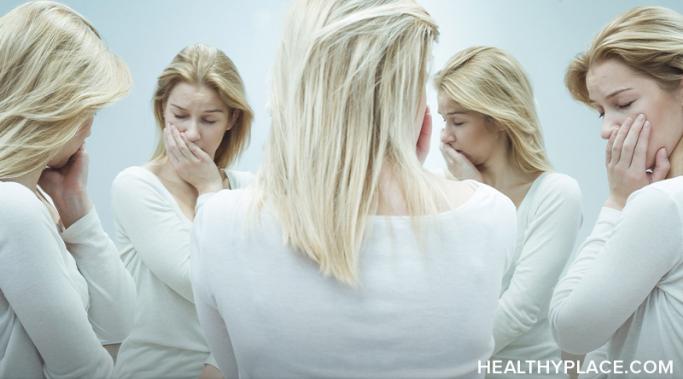Blogs
Angry, frustrated, irritated and anxious – did I ever mention that bipolar mania, hypomania and depression are not the only mood/emotional states of my bipolar disorder? While most of these aren’t, technically, symptoms of bipolar disorder, they are common expressions of, or occur with, bipolar disorder. So, sometimes, instead of being “simply” depressed or hypomanic, I also feel dramatically anxious, frustrated, angry or irritated.
You can use trending social media posts to combat mental health stigma. Every once in a while, a “copy and paste this post” about mental illness will make its way across social media (Use Social Media to Combat Mental Health Stigma). These posts are typically short or a couple paragraphs long, which is likely how they gain traction since short and sweet is easier to deal with and then move on from. That being said, these trending posts about mental health usually don’t do much to combat stigma.
Do you know how to cope with self-harm thoughts? Self-injury is a highly stigmatized behavior that is common among people with borderline personality disorder. Self-injury is never a healthy coping skill, and people thinking of self-harm should fight against it by using healthy coping skills. But what healthy coping skills should one use? Here are ways to cope with self-harm thoughts.
The holidays are officially here and with them come the need for holiday stress management tips (Self-Help Stress Management). Here are a few holiday stress management tips that I use to maintain my blissful life.
To feel anxious but know intellectually that you shouldn’t really be experiencing anxiety is an incredibly frustrating experience. This frustration can increase both stress and anxiety as well as decrease self-efficacy, the belief in ourselves that we have what it takes to overcome challenges like anxiety and meet goals. To stop feeling anxious even when you know you shouldn’t is easier said than done—hence the irritation that comes when someone tells you to “just stop being anxious”. There is a way to bridge the gap between feeling anxious and knowing you shouldn’t.
Coping with depression during the holidays can be tough. The holiday season is upon us and with it comes all sorts of internal battles, emotional struggles, financial stretches, and difficult decisions. While that's a harsh description of the most wonderful time of the year, I’ve lived through enough holiday seasons to know that the ratio of holiday spirit to holiday sorrow can sometimes be less than ideal. It can feel like you're drowning in expired egg nog when you’re coping with depression during the holiday months (What Is Holiday Depression?), so I’ve written down a few ways of surviving the holidays while coping with depression.
There can be a lot of unknowns in dissociative identity disorder (DID), including what parts make up your DID system. While some people with DID seem to know everything about their alters, there are others with who don't even know how many parts they have. It can be frustrating when you don't have all the answers, but it's okay not to know everything. You can still live, and you can still heal, even when your DID system parts are unknown.
Enjoying the holidays with your mentally ill loved one can seem like an enormous challenge. But even if you have to alter your expectations and change a few traditions, it is still possible to have a great holiday together. Here's how to enjoy the holidays with your mentally ill loved one.
Even if you consider yourself a happy person you may be susceptible to holiday depression. Do you find yourself obsessing over pictures on social media of people surrounded by smiling family members, wishing you had another life? Do the holidays make you feel isolated from the rest of the world? You are not alone (Seasonal Affective Disorder (SAD) Symptoms – Who’s At Risk). Read on to learn about holiday depression.
Are there alternative treatments for schizophrenia? Recently I was diagnosed with liver disease, cause unknown. As I don't drink and have a reasonably good diet, I suspect the psychiatric medication I am on, which metabolizes in the liver may be the culprit. It's left me wondering if there are alternative treatments for schizophrenia, and, if so, what are they and how do they work? Note that you should never go off your medication or start an alternative medicine without your doctor's approval--I'm putting this out only to start a discussion.









